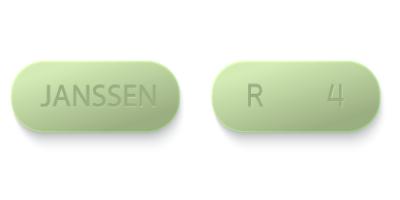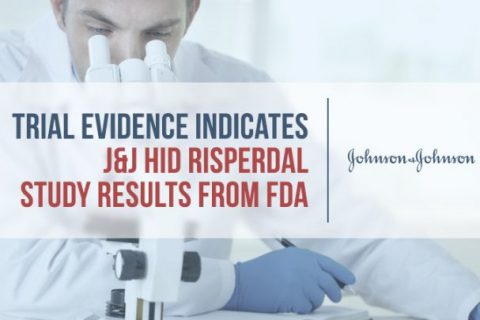Risperdal
Risperdal (risperidone) is a medication used to treat schizophrenia, bipolar disorder and irritability associated with autistic disorder. Doctors also prescribe Risperdal off-label to treat attention deficit hyperactivity disorder (ADHD), anxiety, sleep difficulties and depression. Risperdal belongs to a class of drugs called atypical antipsychotics.
Our content is developed and backed by respected legal, medical and scientific experts. More than 30 contributors, including product liability attorneys and board-certified physicians, have reviewed our website to ensure it’s medically sound and legally accurate.
legal help when you need it most.
Drugwatch has provided people injured by harmful drugs and devices with reliable answers and experienced legal help since 2009. Brought to you by Wilson & Peterson LLP, we've pursued justice for more than 20,000 families and secured $324 million in settlements and verdicts against negligent manufacturers.
More than 30 contributors, including mass tort attorneys and board-certified doctors, have reviewed our website and added their unique perspectives to ensure you get the most updated and highest quality information.
Drugwatch.com is AACI-certified as a trusted medical content website and is produced by lawyers, a patient advocate and award-winning journalists whose affiliations include the American Bar Association and the American Medical Writers Association.
About Drugwatch.com
- 15+ Years of Advocacy
- $324 Million Recovered for Clients
- 20,000 Families Helped
- A+ BBB Rating
- 4.9 Stars from Google Reviews
Testimonials
I found Drugwatch to be very helpful with finding the right lawyers. We had the opportunity to share our story as well, so that more people can be aware of NEC. We are forever grateful for them.
- Medically reviewed by Kenneth S. Fill, Pharm.D., MBA
- Last update: March 7, 2025
- Est. Read Time: 6 min read
Risperdal (risperidone) is a powerful second generation antipsychotic initially approved for the treatment of schizophrenia in adults and adolescents. The U.S. Food and Drug Administration later expanded the medication’s approved uses to include treatment of bipolar disorder in adults and adolescents and treatment of irritability associated with autistic disorder in children and adolescents. The drug works by altering levels of chemicals in the brain called dopamine and serotonin.
Doctors also prescribe the drug “off label”— or without FDA approval — to treat attention deficit hyperactivity disorder (ADHD), anxiety, sleep difficulties and depression.
Johnson & Johnson’s Janssen Pharmaceuticals unit began selling the drug in 1993, and it has made billions for the company. Annual sales peaked at more than $4.5 billion in 2007, but revenue dropped after the drug lost its patent and generics became available. In 2003, the FDA approved Risperdal Consta, an injectable version of the medication.
Risperdal is controversial because Johnson & Johnson allegedly engaged in illegal practices to market the drug. The U.S. Department of Justice says the company marketed the drug to children, paid doctors to speak favorably of the drug, and paid kickbacks to the country’s largest long-term care pharmacy for promoting the medication to doctors who treat nursing home patients. The company agreed to pay more than $2.2 billion to resolve criminal and civil investigations.
Some patients who had suffered a serious side effect called gynecomastia, a condition in which boys and young men develop female breasts, filed lawsuits against Johnson & Johnson that claimed the company failed to warn them of the risk.
How Does Risperdal Work?
Risperdal works by altering the levels of dopamine and serotonin in the brain. The liver breaks down the medicine into its active chemical ingredients called metabolites. The metabolites block serotonin and dopamine. This helps balance the chemicals in the brain and decreases psychotic and aggressive behavior.
The drug is designed to work alone, but doctors may combine it with other medications like lithium or an antidepressant to treat bipolar disorder. The FDA approved this use based on two short-term trials in adults and one short-term trial in children and adolescents ages 10 to 17. Each trial lasted three weeks.
In four short-term clinical trials that lasted four to eight weeks, researchers found Risperdal was “generally superior” to a placebo in treating schizophrenia, according to the drug’s prescribing information.
To judge the drug’s efficacy, scientists used the Brief Psychiatric Rating Scale, which evaluates the effects of drug treatment in schizophrenia patients. Researchers looked at how the drug improved symptoms such as conceptual disorganization, hallucinations, suspiciousness and unusual thought content.
“[Risperidone] has pretty big effects on tantrums, aggression and self-injury.”
The drug is also effective at treating explosive and aggressive behavior that can accompany autism, according to a 2014 article in Scientific American.
The change can be dramatic and may take effect in just weeks, Professor Lawrence Scahill, who has conducted clinical trials of risperidone, told Scientific American.
Risperidone “has pretty big effects on tantrums, aggression and self-injury,” said Scahill, who is a professor of pediatrics at Marcus Autism Center at Emory University in Atlanta.
Side Effects
Unfortunately, what makes Risperdal work may also cause side effects. The drug’s label has a lengthy list of side effects that range from more common but less serious reactions such as nausea and dizziness to more serious problems such as movement disorders and gynecomastia.
Serious side effects include tardive dyskinesia, stroke, seizures and erections that last several hours. The medication carries a black box warning for increased death in elderly patients. The FDA did not approve the drug for use in patients with dementia-related psychosis.
- Parkinsonism
- Akathisia (restlessness)
- Dystonia (involuntary muscle movements)
- Tremors
- Dizziness
- Anxiety
- Blurred vision
- Nausea
- Vomiting
- Upper abdominal pain
- Stomach discomfort
- Diarrhea
- Constipation
- Dry Mouth
- Increased weight and appetite
- Fatigue
- Rash
- Nasal congestion
- Upper respiratory tract infection
Death in Elderly Patients
Risperdal’s black-box warning cautions against use of the drug in elderly patients with dementia. Data from clinical trials collected over a period of 10 weeks showed a 4.5 percent rate of death in patients treated with atypical antipsychotic drugs compared with a 2.6 percent risk in patients treated with a placebo. While causes of those deaths varied, the majority were cardiovascular deaths, heart failure or sudden death, or infectious conditions such as pneumonia.
Formulas and Dosages
Risperdal comes as a tablet, orally disintegrating tablet or liquid. It’s also available in a long-acting injection called Risperdal Consta. Doctors typically instruct patients to take risperidone tablets or solution once or twice daily with or without food.
Patients usually begin taking the medicine at a low dose and then their doctor will increase the amount slowly over time. The 2022 recommendation for prescribed oral dose ranges from 1 mg to 6 mg.
- Tablets
- 0.25 mg, 0.5 mg, 1 mg, 2 mg, 3 mg, and 4 mg
- Oral solution
- 1 mg per mL
- Orally disintegrating tablets
- 0.5 mg, 1 mg, 2 mg, 3 mg, and 4 mg
People can swallow risperidone orally disintegrating tablets with or without something to drink. These drugs will dissolve in the mouth almost immediately. Do not try to split or chew the tablet.
Before each dose, patients should open the package with clean, dry hands. It’s important to place the entire tablet on the tongue right away because the tablet cannot be stored once it’s out of its packaging.
With the oral solution, patients can take medicine directly from the calibrated pipette, or they can mix it with water, coffee, orange juice or low-fat milk. Do not mix the solution with soda or tea.
Unlike the tablets and solution, the injection is given by a health care professional. A doctor will inject Risperdal Consta into a patient’s upper arm or buttocks every two weeks.
The dose typically ranges from 12.5 mg to 50 mg. The medication gradually releases in the body over time, which allows it to work until the next scheduled injection.
The medicine’s effects last for about two weeks. A doctor may also recommend patients take the tablet form of risperidone each day for up to three weeks.
Dosages by Indication and Age
Depending on why a person takes Risperdal, the dose may be different. Dosages for children and adults also vary, according to the medication insert.
| Indication | Initial Dose | Target Dose |
|---|---|---|
| Schizophrenia in adults | 2 mg | 4 mg to 8 mg |
| Schizophrenia in adolescents | 0.5 mg | 3 mg |
| Bipolar mania in adults | 2 mg to 3 mg | 1 mg to 6 mg |
| Bipolar mania in children and adolescents | 0.5 mg | 1 mg to 2.5 mg |
| Irritability associated with autism | 0.25 mg to 0.5 mg (depending on weight) | 0.5 mg to 1 mg |
Drug Interactions and Use in Pregnant Women
Certain drugs may interact with risperidone and affect the way it works. For example, carbamazepine and other similar drugs can reduce the amount of risperidone in plasma. As a result, doctors may double the patient’s dose of Risperdal.
On the other hand, antidepressants such as Prozac and Paxil can increase the amount of risperidone in the blood. The medication guide instructs doctors to reduce the initial Risperdal dose and to not prescribe more than 8 mg of the drug.
Other drugs that affect the way risperidone works include: drugs that lower blood pressure, levodopa and dopamine agonists and the antipsychotic clozapine.
Patients should avoid drinking alcohol while taking Risperdal because of the drug’s central nervous system effects.
Women who take the medication should let their doctor know if they become pregnant or plan to become pregnant. The medication can cause withdrawal and extrapyramidal symptoms in babies exposed to the drug in the third trimester, according to the FDA. Extrapyramidal symptoms are movement disorders and include tardive dyskinesia, Parkinsonism and akathisia.
According to the drug’s prescribing information, data from observational studies, birth registries, and case reports do not show a “clear association” with antipsychotics like Risperdal and major birth defects. However, a small study of six women treated with risperidone showed the medicine passed through the placenta.
A larger study that looked at the records of 9,258 women who had been exposed to antipsychotics during pregnancy did not indicate an overall greater risk for major birth defects, according to the drug’s label. But the study did show a small increase in the risk of major birth defects and of cardiac malformations in a subgroup of 1,566 pregnant women who had been exposed to the drug during their third trimester.
Calling this number connects you with a Drugwatch.com representative. We will direct you to one of our trusted legal partners for a free case review.
Drugwatch.com's trusted legal partners support the organization's mission to keep people safe from dangerous drugs and medical devices. For more information, visit our partners page.





